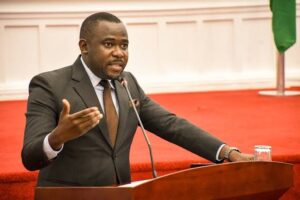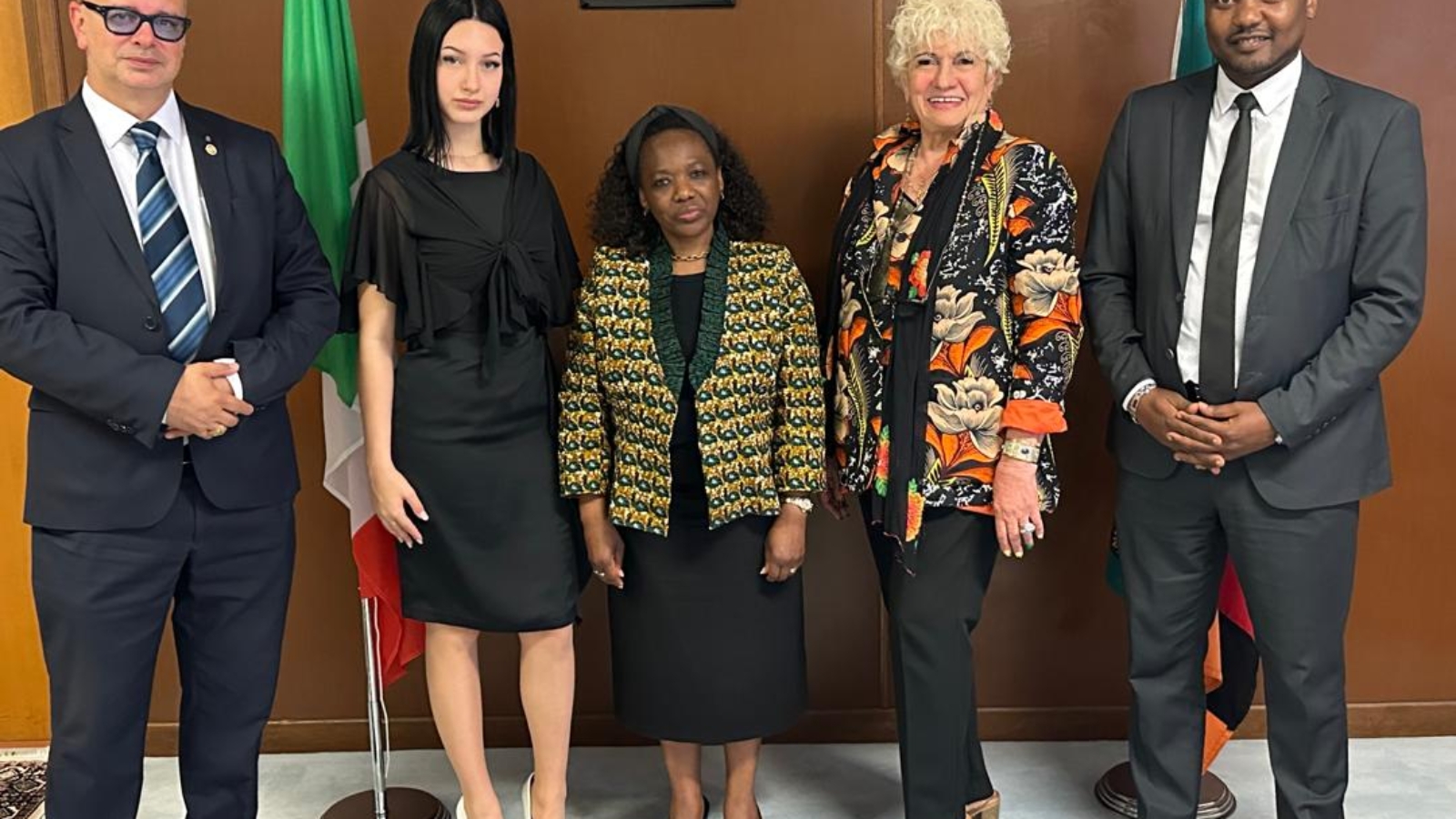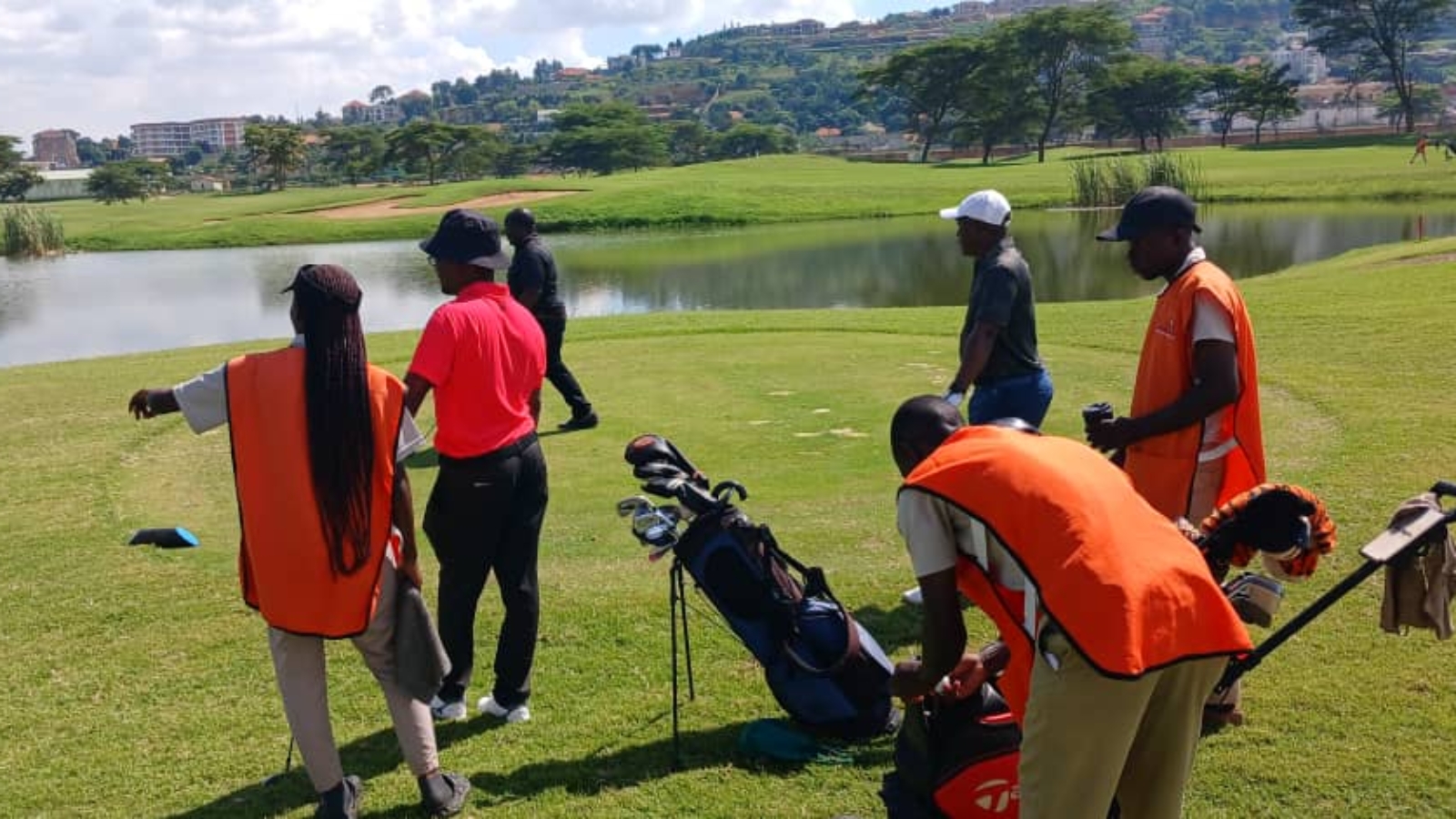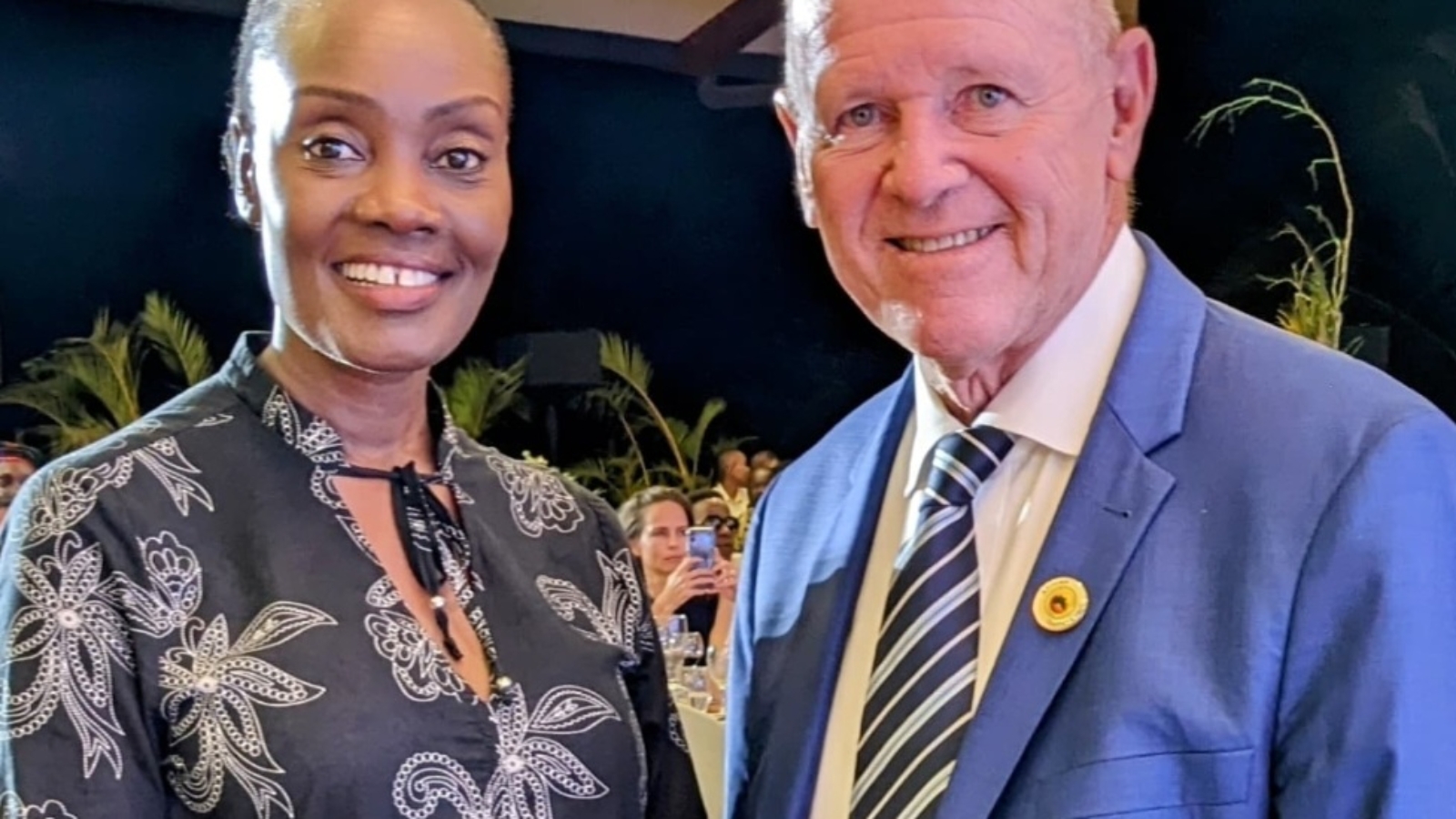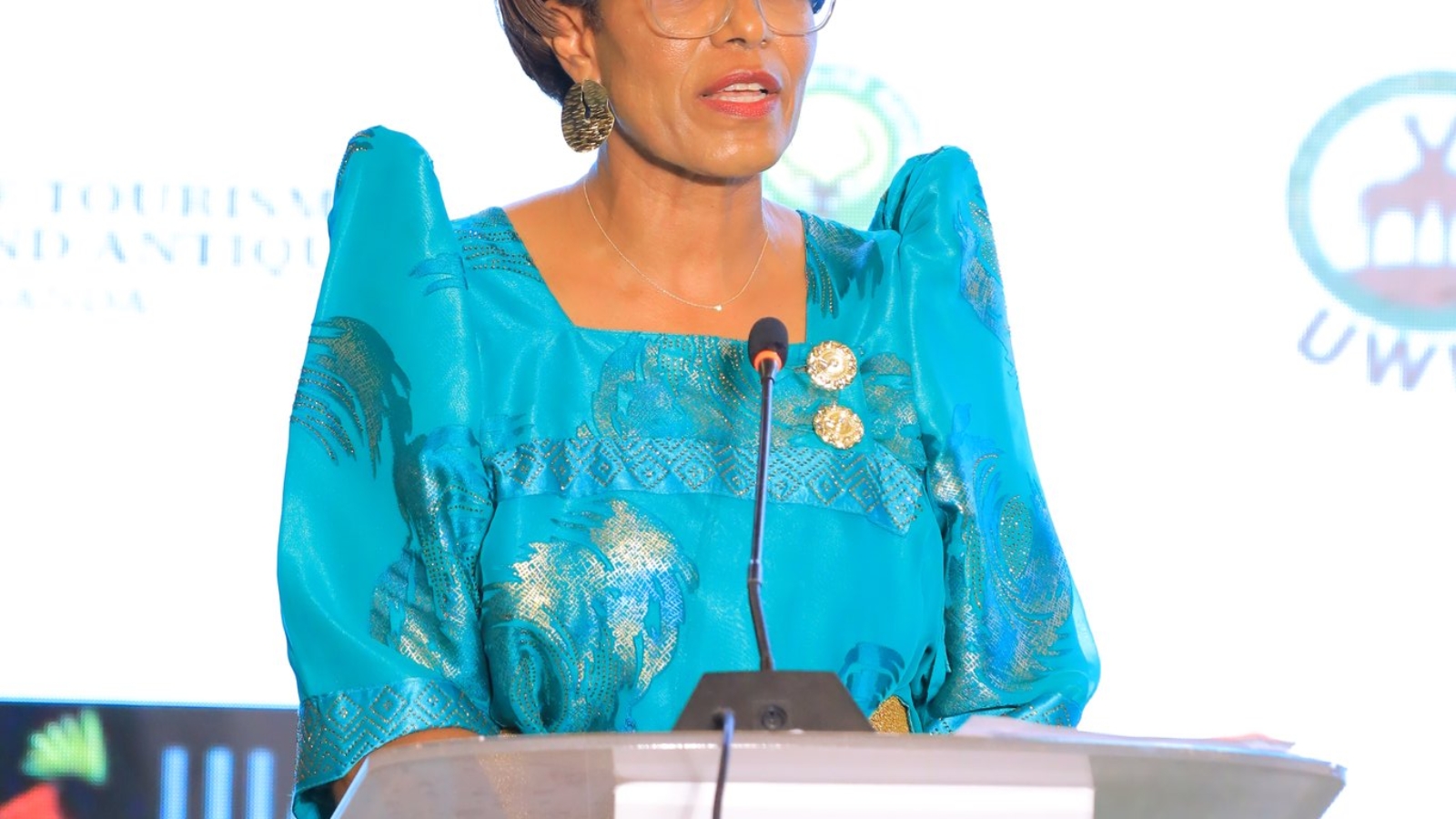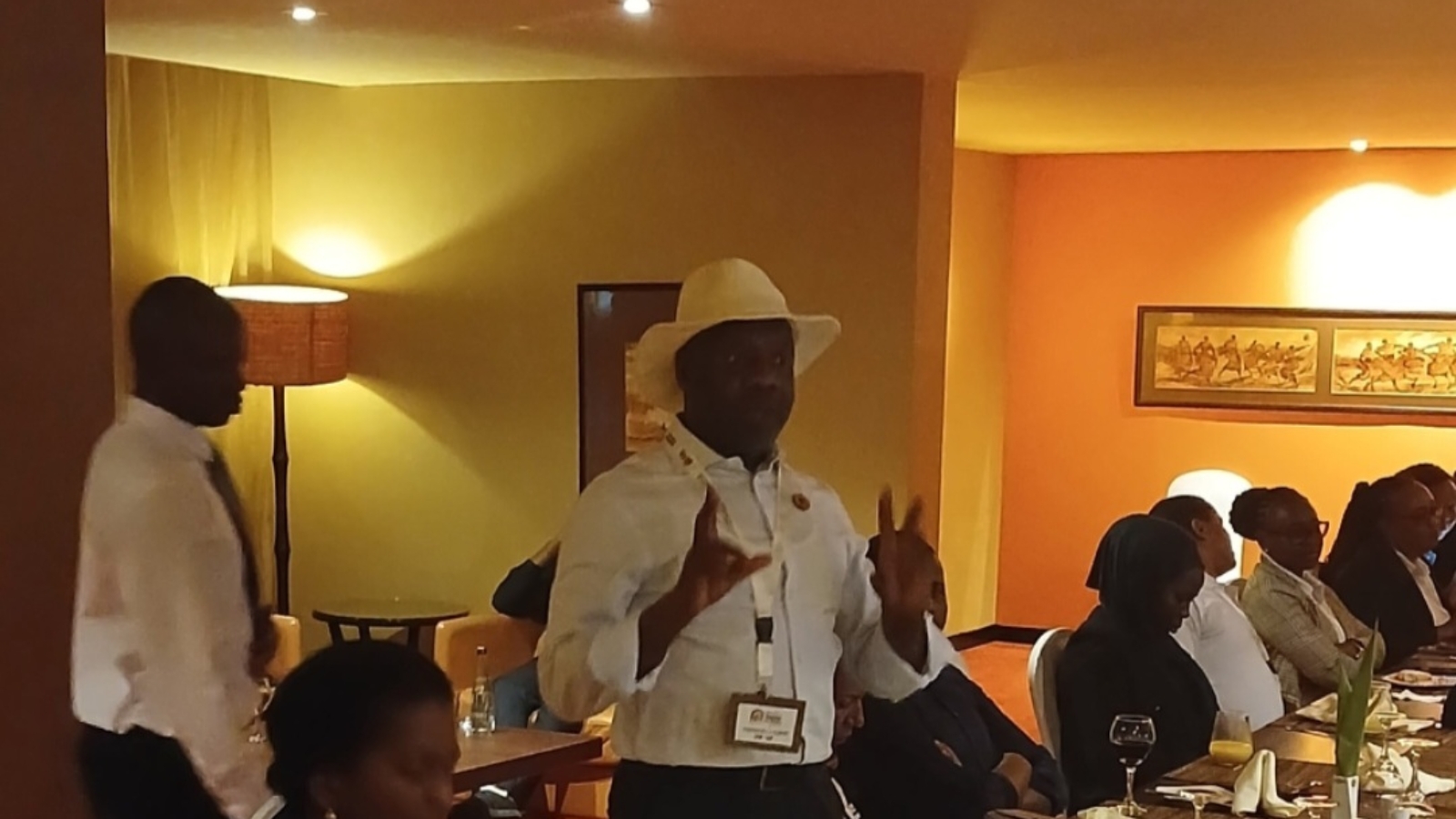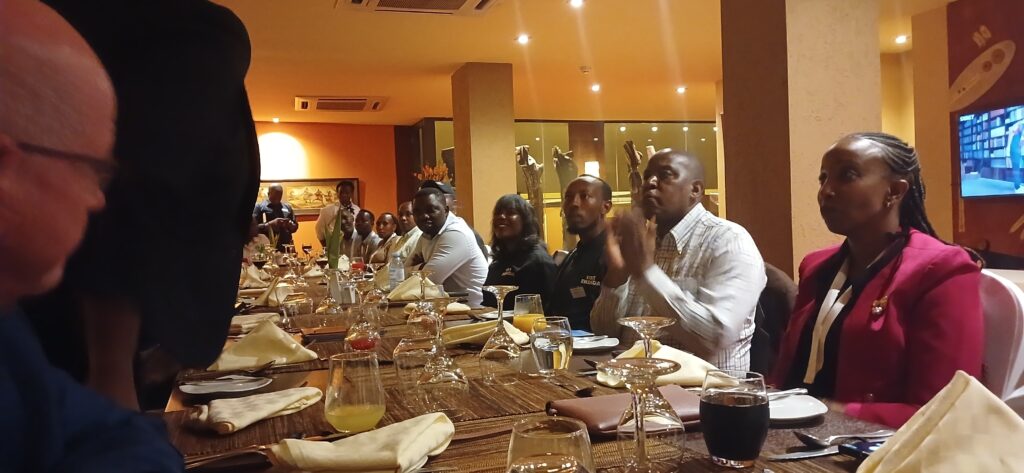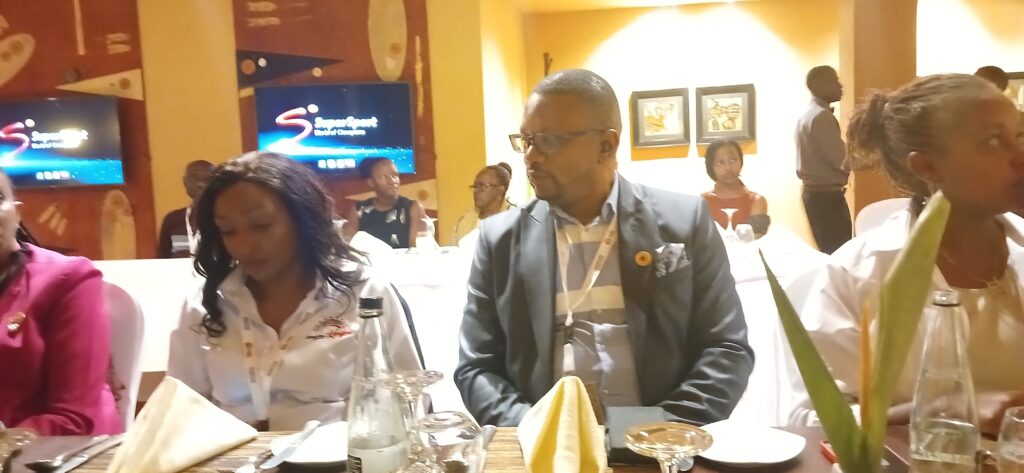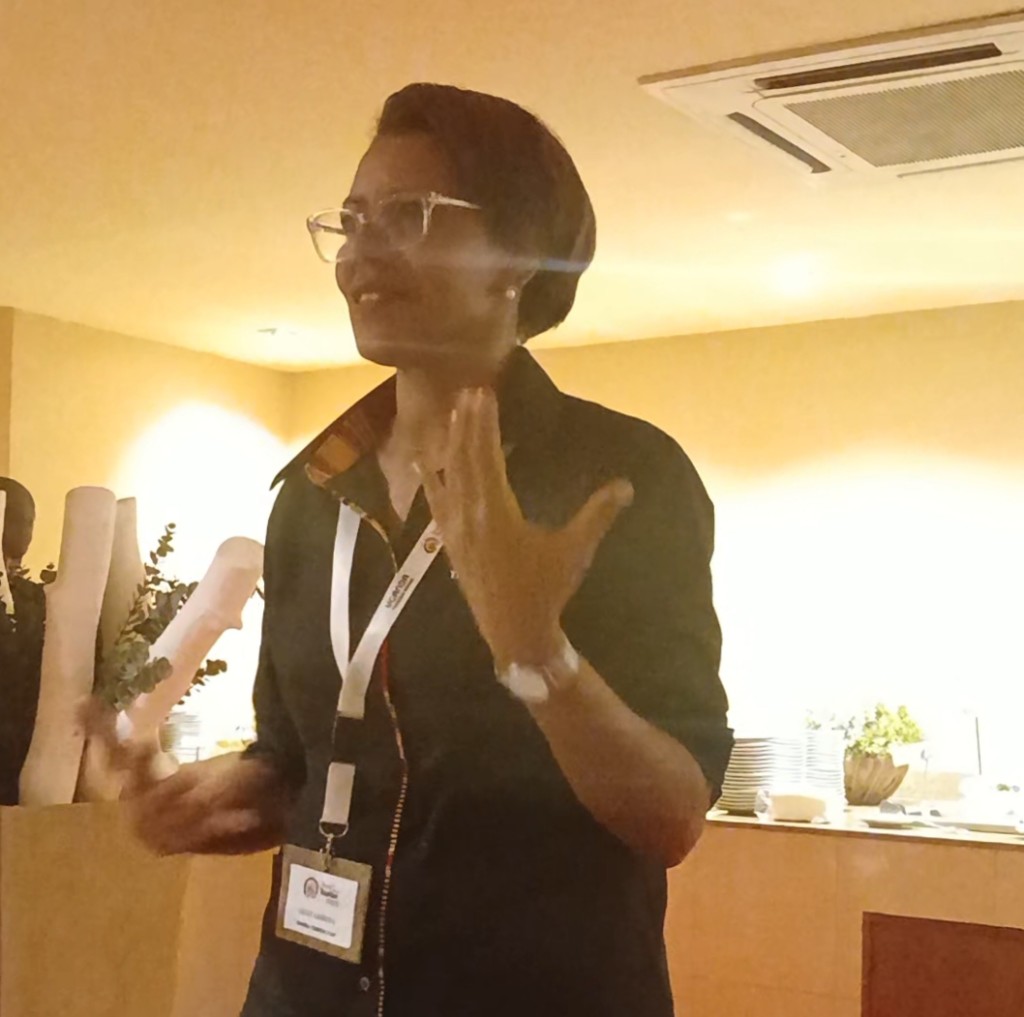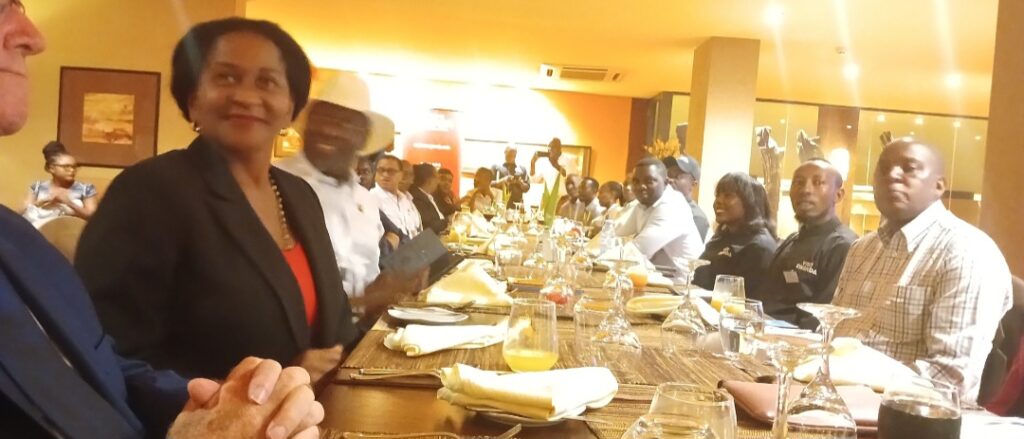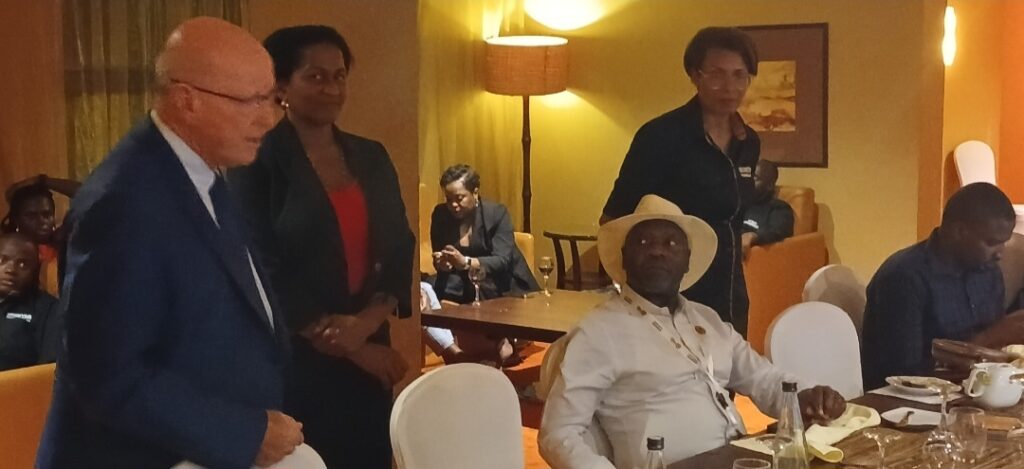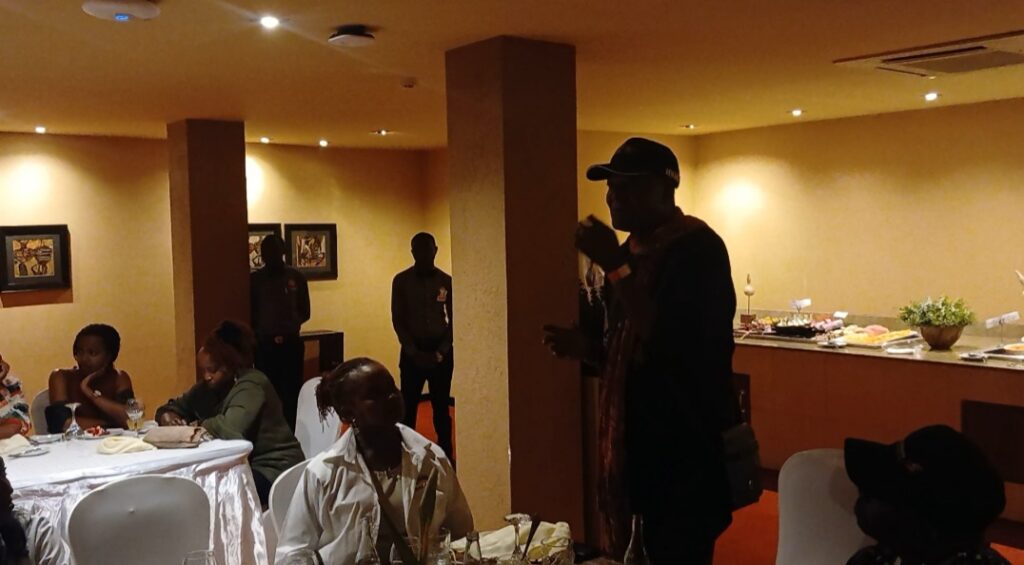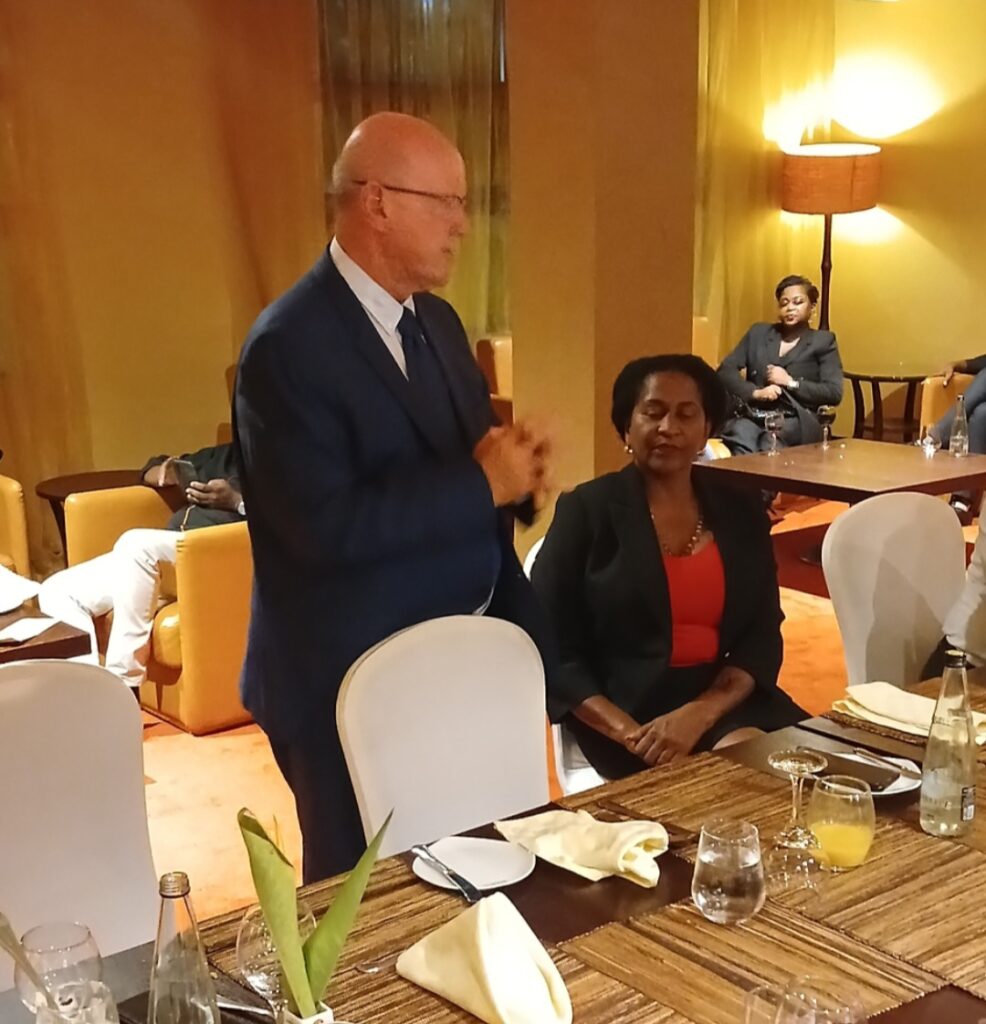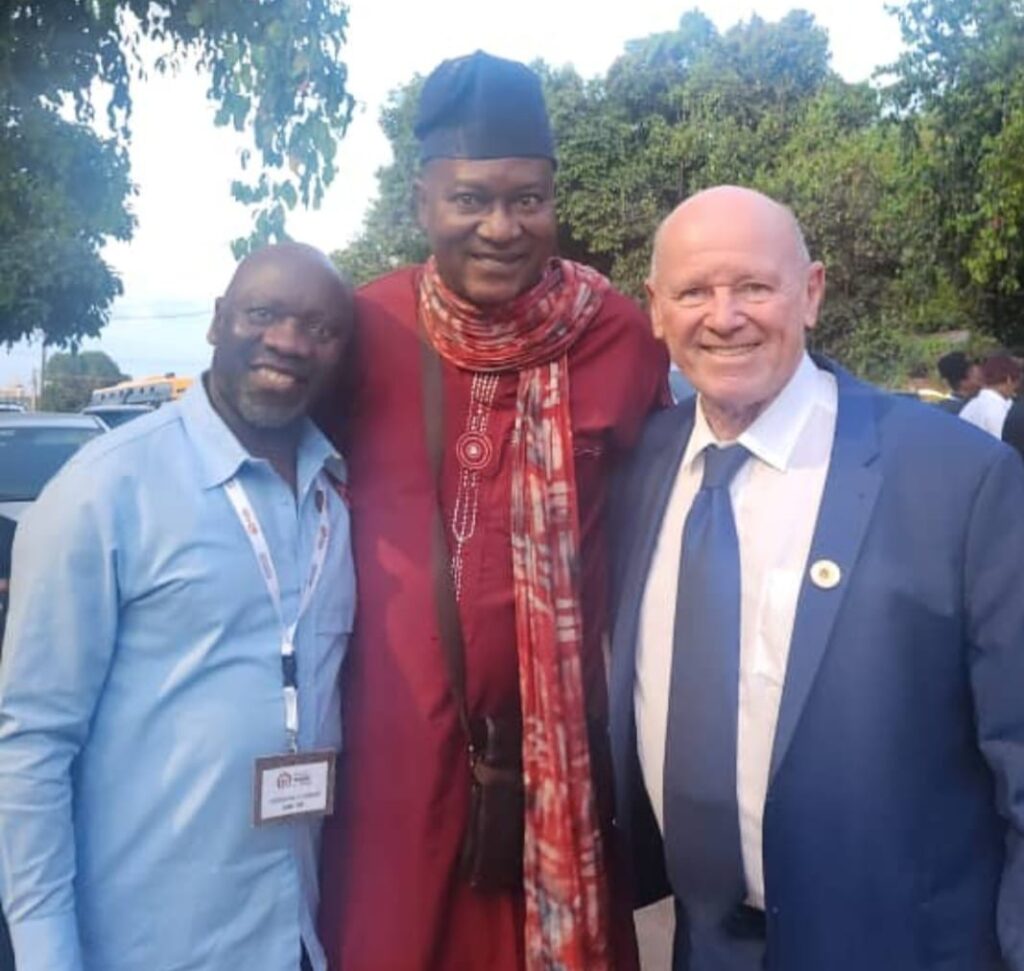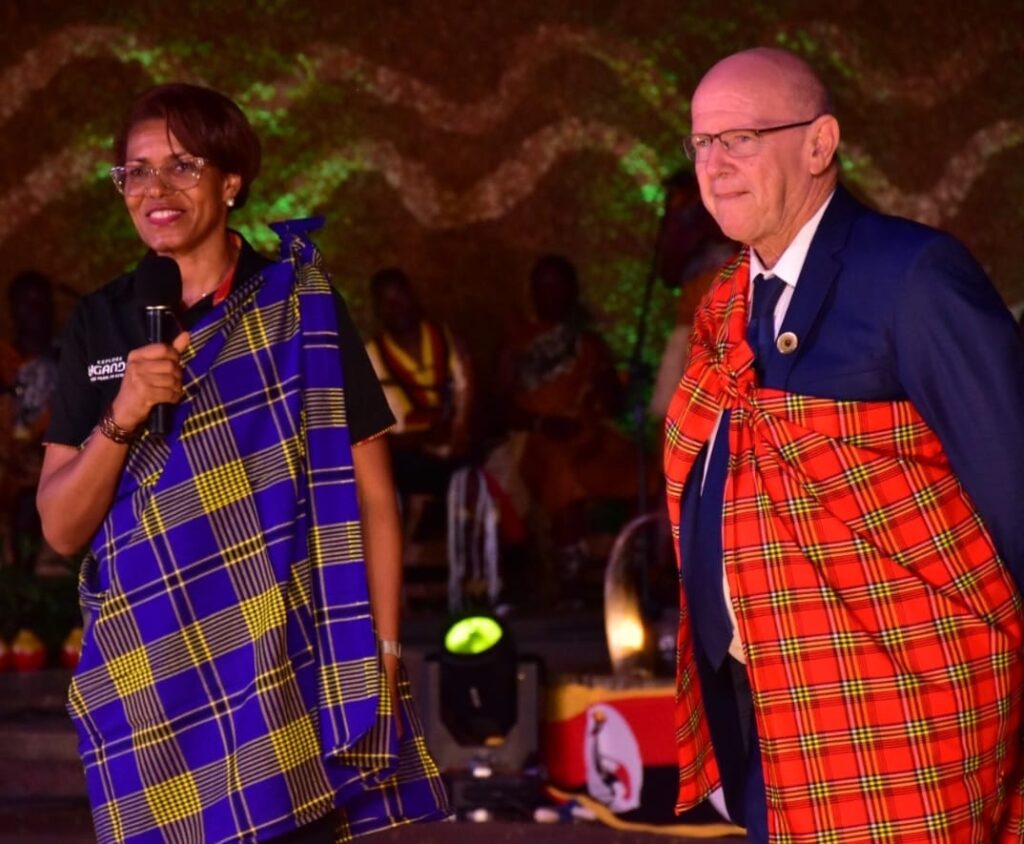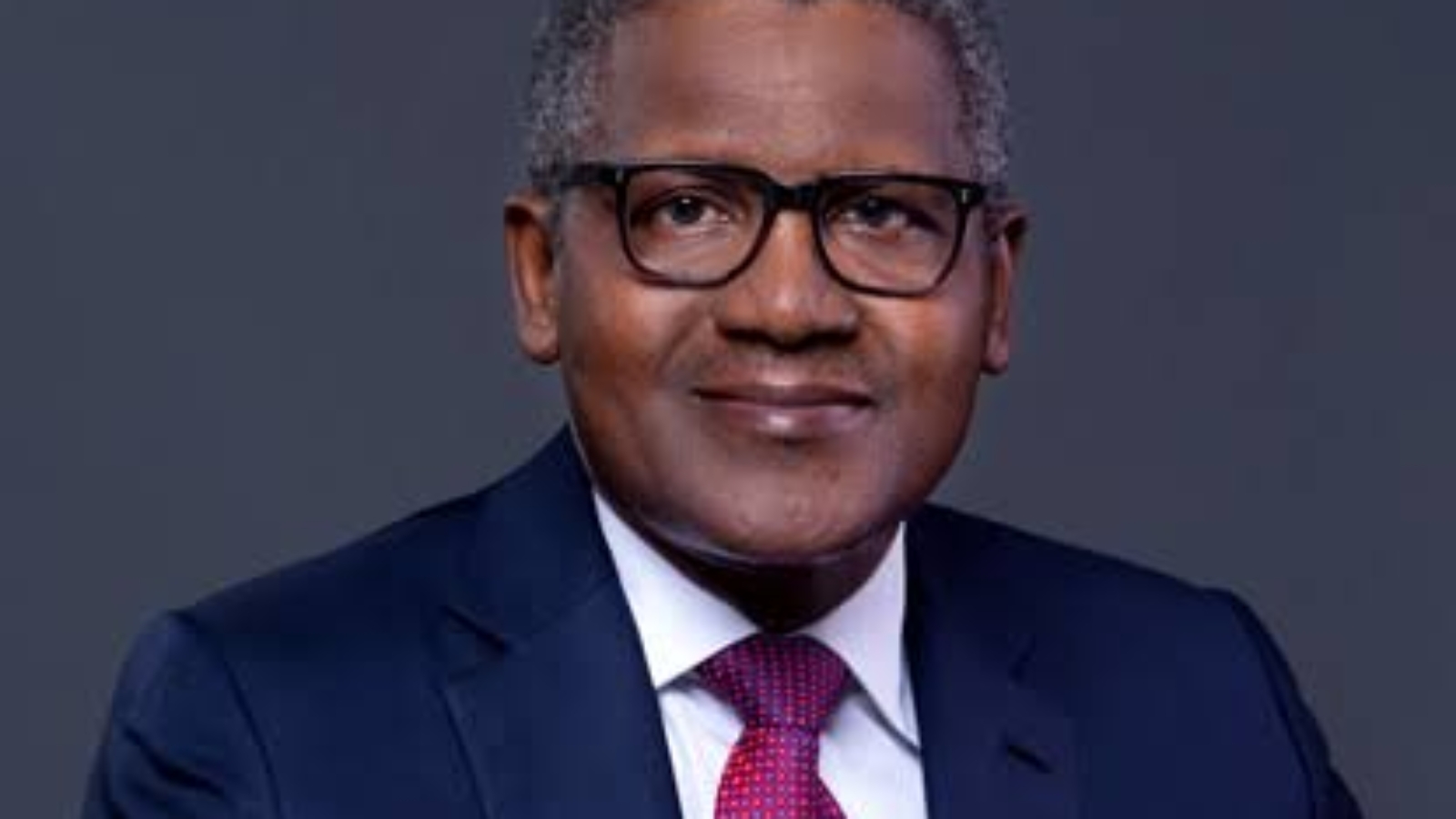Accra, Ghana
Journalist: Kazeem Balogun
In a vibrant gathering resonating with the echoes of cultural heritage and pride, Professor Jeleel Olasunkanmi Ojuade, the esteemed Vice Chancellor of Ojaja University, Eyenkorin, Kwara State, Nigeria, delivered a groundbreaking keynote address at the Tribute Concert Awards: All Yoruba Heroes Summit in Ghana on Saturday, May 18, 2024. The event, a tribute to the indomitable spirit of Yoruba heroes, set the perfect stage for Professor Ojuade’s insightful paper on “Socio-economic Impact of the Yoruba Diaspora: Fostering Development and Unity.”
Amidst an audience of distinguished guests, academics, and cultural enthusiasts, Professor Ojuade illuminated the profound influence of the Yoruba diaspora on global socio-economic landscapes. His speech underscored the crucial role of cultural unity and collective identity in driving development and fostering a sense of belonging among Yoruba communities worldwide.
As he explored the dynamic interplay between tradition and modernity, Professor Ojuade highlighted the potential for the diaspora to act as a catalyst for economic growth and social cohesion, reinforcing the timeless values of resilience and unity that have long defined the Yoruba people.
With eloquence and authority, Professor Ojuade’s address not only celebrated the achievements of Yoruba heroes but also charted a visionary path forward, emphasizing the need for collaborative efforts to harness the diaspora’s potential. His words resonated deeply, inspiring a renewed commitment to fostering development and unity within and beyond the Yoruba community.
Please savour the full speech, undiluted as delivered.
Excerpts:
INTRODUCTION
Distinguished guests, esteemed colleagues, and friends. It is with great humility and gratitude that I stand before you today as we convene at this prestigious Summit. It is also, an honor to be in the midst of such a dynamic group of individuals who contribute immensely to the betterment of our society. Indeed, I offer my deepest appreciation to the organizers for extending this gracious invitation to me, affording us the opportunity to engage in meaningful discourse on a topic of paramount importance: “Socio-Economic Impact of the Yoruba Diaspora: Fostering Development and Unity”.
THE YORUBA CULTURE
The term “Yoruba” refers to a people and a language spoken largely by the Yoruba ethnic group in Southwestern Nigeria. The mobility of the Yoruba people, due to the trans-Atlantic slave trade, commerce, and other forms of migrating factors have spread the people and their language to other West Africa countries, such as Togo, Ghana, Cote D’Ivoire,Republic of Benin, Gambia and Sierra Leone. The Yorùbá people are also found across North America, the Caribbean, United Kingdom and South America, particularly in Cuba and Brazil. Yoruba as L1 (first language) is spoken in the Southwestern Nigeria while in other climes where Yoruba people are found it is either spoken as L1 or L2 (second language).
THE YORUBA DIASPORA
Allow me to ask a simple yet profound question: What does it mean to be part of a diaspora? For the Yoruba people, the answer lies not only in our rich cultural heritage but also in our ability to adapt, innovate, and contribute to the societies we inhabit across the globe. Thus, the term Yoruba diaspora is used here to refer to all those of Yoruba descent who settle outside the shores of the Yoruba homeland but maintain socio-cultural linkages with the homeland or who continue to maintain Yoruba identity. The Yoruba diaspora includes individuals who have experienced migration and others who were born and brought up in a new community of settlement. In this way, Yoruba diaspora implies that the culture survived, transformed and remained relevant even when members of the diaspora have not lived in the original homeland. As we gather here today, both physically and virtually, for the TC Awards 2024/All Yoruba Heroes Summit Media launch, we are celebrating not just individual achievements but also the collective impact of the Yoruba diaspora.
The Yoruba people, renowned for their rich cultural heritage, entrepreneurial spirit, and spirit of innovation, have a long and storied history of migration and diasporic engagement, spanning centuries and continents. From the shores of West Africa to the far reaches of the globe, the Yoruba diaspora has played a significant role in shaping the social, economic, and cultural landscapes of their host communities, contributing to diversity, prosperity, and development wherever they go. From the bustling streets of Lagos to Accra, to the vibrant neighborhoods of London, and from the sunny shores of Brazil to the bustling cities of the United States, the Yoruba diaspora has left an indelible mark on the world.
Our contributions are as diverse as they are impactful. In education, Yoruba scholars and educators have excelled in universities and research institutions, pushing the boundaries of knowledge and innovation. In business, Yoruba entrepreneurs have built successful enterprises, creating jobs and economic opportunities. In the arts and culture, Yoruba artists, musicians, and writers have captivated audiences worldwide, showcasing the beauty and complexity of our heritage. But our contributions go beyond the realms of academia, business, and the arts. They extend to the very fabric of society, shaping communities and fostering unity. Many Yoruba people living abroad have been active participants in the political life of their host countries, advocating for the rights and interests of their communities and contributing to the democratic process.
EXPLORING THE SOCIO-ECONOMIC IMPACTS OF THE YORUBA DIASPORA IN GHANA
In the context of Ghana, a country with a vibrant and diverse population, the Yoruba diaspora has undoubtedly, made invaluable contributions to various sectors of the economy, including trade, commerce, education, healthcare, and the arts. Through their entrepreneurial ventures, professional expertise, and cultural exchange initiatives, members of the Yoruba diaspora have enriched the fabric of Ghanaian society, fostering economic growth, innovation, and social cohesion. One of the most notable aspects of the socio-economic impact of the Yoruba diaspora in Ghana is its role in promoting unity and solidarity among diverse communities. Despite differences in language, culture, and tradition, the Yoruba diaspora has served as a bridge between Ghana and Nigeria, fostering cross-border collaboration, exchange, and partnership in areas such as trade, investment, and cultural diplomacy. By transcending national boundaries and fostering a sense of common identity and purpose, the Yoruba diaspora has contributed to the promotion of peace, harmony, and mutual respect among peoples of diverse backgrounds, laying the foundation for sustainable development and prosperity. Some other key impacts and contributions may therefore include:
- Trade and Commerce: The Yoruba diaspora in Ghana has long been synonymous with entrepreneurship, innovation, and enterprise. Through their vibrant trading networks, market stalls, and business ventures, Yoruba traders have played a pivotal role in driving economic activity, facilitating cross-border trade, and promoting the exchange of goods, services, and ideas between Ghana and Nigeria. Their entrepreneurial spirit and commercial acumen have stimulated local economies, created employment opportunities, and fueled economic growth in both urban and rural areas.
- Innovations: The Yoruba diaspora has been instrumental in driving innovation in Ghana, leveraging their skills, knowledge, and networks to create employment opportunities, stimulate economic growth, and enhance the competitiveness of local industries. Through initiatives such as diaspora remittances, investment partnerships, and knowledge transfer programs, members of the Yoruba diaspora have catalysed the development of key sectors of the Ghanaian economy, including agriculture, technology, finance, and tourism, contributing to poverty alleviation, wealth creation, and social empowerment.
- Education and Knowledge Transfer: Beyond their contributions to the economy, members of the Yoruba diaspora have been instrumental in promoting education, knowledge transfer, and human capital development in Ghana. Through their investments in education, scholarship programs, and mentorship initiatives, Yoruba educators, scholars, and professionals have enriched the intellectual life of the nation, nurturing the next generation of leaders, innovators, and change-makers. Their commitment to academic excellence and lifelong learning has empowered Ghanaian youth to realize their full potential and contribute meaningfully to society.
Our father, the great Ooni of Ife, HIM Ooni (Dr.) Adeyeye Enitan Babatunde Ogunwusi, CFR took a bold step in this direction fulfilling his age long ambition owning a citadel of learning by acquiring Crown – Hill University at Eyenkorin, Ilorin, Nigeria, (which was established in 2016) and renamed it Ojaja University.
- Cultural Exchange and Diplomacy: The Yoruba diaspora in Ghana has served as a cultural bridge, fostering mutual understanding, respect, and appreciation between Ghanaian and Nigerian communities. Through their cultural festivals, religious ceremonies, and artistic expressions, Yoruba men and women have celebrated the richness and diversity of their heritage, promoting intercultural dialogue, social cohesion, and peace-building initiatives. Their cultural diplomacy efforts have strengthened bilateral relations, enhanced cross-cultural communication, and promoted a spirit of unity and solidarity among peoples of diverse backgrounds.
Consequently, below is a brief overview of how some notable individuals have contributed to the social, economic, and cultural development of their host nations, showcasing the impact of Yoruba heritage and culture on a global scale:
Chief Brimah: He established the first settlement in British Accra, known as “Zongo”, which became a hub for strangers visiting Accra. He also played a key role in the Kola-nut trade between Nigeria and Ghana, contributing to economic activity and cultural exchange.
Justice Augustus Molade Akiwunmi: As a barrister, judge, and second Speaker of the Parliament of Ghana, he contributed to the legal and political development of Ghana, showcasing the professionalism and leadership abilities of Yoruba individuals.
Alhaji Razak EL Alawa: His achievement in winning the Journalist of the Year contest three times in Ghana and being the press secretary to President of Ghana, President Dr. Hilla Limann highlights the excellence and skill of Yoruba individuals in the field of journalism, contributing to the media landscape of Ghana.
Yinka Shonibare: Through his artwork exploring colonialism, globalization, and cultural identity, he has contributed to global conversations on these topics, showcasing the intellectual and creative contributions of Yoruba individuals to the art world.
Hakeem Olajuwon: As a successful NBA player and philanthropist, he has not only achieved personal success but has also used his platform to contribute to charitable causes, showcasing the values of giving back and community development.
Ade Adepitan: Through his work as a television presenter, wheelchair basketball player, and disability rights advocate, he has raised awareness about disability issues, contributing to a more inclusive society.
Kehinde Wiley: He is known for his portrait paintings challenging traditional depictions of power and status. He has contributed to expanding the representation of marginalized groups in art, showcasing the cultural and artistic contributions of Yoruba individuals.
Sade Adu: Through her music, she has made a significant impact on the music industry, showcasing the talent and creativity of Yoruba individuals in the field of music.
Adewale O. “Wally” Adeyemo: As a government official, he has contributed to shaping economic policy in the United States, showcasing the intellectual and leadership abilities of Yoruba individuals on the global stage.
Minister Kemi Badenoch: Her contributions in her ministerial role showcase the leadership and professionalism of Yoruba individuals in government and public service.
Sikiru Adepoju: As a Nigerian percussionist, he has contributed to the music industry, showcasing the musical talents of Yoruba individuals on a global scale.
Israel Adesanya: Through his success in mixed martial arts, he has not only achieved personal success but has also become a role model for aspiring athletes, showcasing the determination and skill of Yoruba individuals in sports.
Amida Brimah: As a Ghanaian MBA basketball player of Yoruba descent, Amida Brimah has excelled in his sport, showcasing the athletic abilities of Yoruba individuals and their contributions to sports. And so many others just to mention a few.
Subsequently, these individuals, through their achievements and contributions, have not only made a mark in their respective fields but have also showcased the rich heritage and culture of the Yoruba people on a global scale. As we reflect on the socio-economic impact of the Yoruba diaspora in Ghana, it is evident that their contributions have been instrumental in fostering unity, development, and prosperity in the host community. More so, as we celebrate these achievements, we must also reflect on the challenges that lie ahead. The world is changing rapidly, and the Yoruba diaspora must continue to adapt and innovate. We must continue to build bridges of understanding and collaboration between nations and cultures. We must continue to foster unity among Yoruba people, both at home and abroad, so that we can create a brighter future for generations to come.
CONCLUSION
I will like to reiterate the fact that Yoruba culture and the society are interwoven. The role of Yoruba culture on social order cannot be under-estimated. Yoruba culture recognises fundamental human rights, truthfulness, transparency, and honesty. Through the culture, the contemporary challenges facing most nations of the world could be confronted. Ultimately, the socio-economic impact of the Yoruba diaspora in Ghana is a testament to the transformative power of diversity, collaboration, and inclusion. Through the collaboration of the collective talents, resources, and energies of the diaspora, Ghana stands poised to unlock new opportunities for growth, innovation, and sustainable development, building a brighter future for all its citizens. We must therefore, seize this moment to embrace our shared humanity, celebrate our cultural diversity, and work together towards a future of prosperity, opportunities, peace, and shared glory.
RECOMMENDATIONS FOR ACTION
- Enhanced Collaboration and Partnership: Governments, civil society organizations, and academic institutions should further combine efforts closely with the Yoruba diaspora in Ghana to harness their socio-economic potential and promote inclusive growth and development. This could include the establishment of joint initiatives, investment partnerships, and knowledge exchange programs aimed at leveraging the expertise, resources, and networks of the diaspora to address key development, challenges and opportunities.
- Capacity Building and Skills Development: Efforts should be made to invest in capacity building and skills development programs targeted at empowering members of the Yoruba diaspora with the knowledge, tools, and resources they need to succeed in their chosen fields. This could involve the provision of vocational training, entrepreneurship support services, and access to finance and markets to enable Yoruba entrepreneurs and professionals to unlock their full potential and contribute meaningfully to Ghana’s economic growth and development.
- Promotion of Cultural Exchange and Heritage Preservation: Initiatives aimed at promoting cultural exchange, heritage preservation, and intercultural dialogue should be prioritized to foster greater understanding, appreciation, and respect for the diverse cultural traditions and identities of Ghana’s Yoruba diaspora. This could include the organization of cultural festivals, art exhibitions, and educational workshops aimed at showcasing the richness and diversity of Yoruba culture and heritage, promoting cross-cultural exchange, and fostering social cohesion and unity among communities.
I hereby call upon all vital stakeholders including the private sectors to continue to support and leverage the socio-economic potential of the Yoruba diaspora in Ghana, recognising their invaluable contributions to our shared prosperity and well-being.
GRATITUDE AND ACKNOWLEDGMENT
I extend my deepest and profound gratitude to the organisers and participants of this summit, particularly my brother, Sile Onigbedu, for your commitment to advancing the frontiers of knowledge, fostering cross-cultural understanding, promoting unity, development and collaboration across borders. Together, let us work hand in hand to build a more inclusive, equitable, and prosperous society, where diversity is celebrated, and every individual has the opportunity to thrive and succeed. Thank You. Professor Jeleel Olasunkanmi Ojuade
The Vice Chancellor, Ojaja University,
Eyenkorin, Ilorin, Kwara State, Nigeria.
